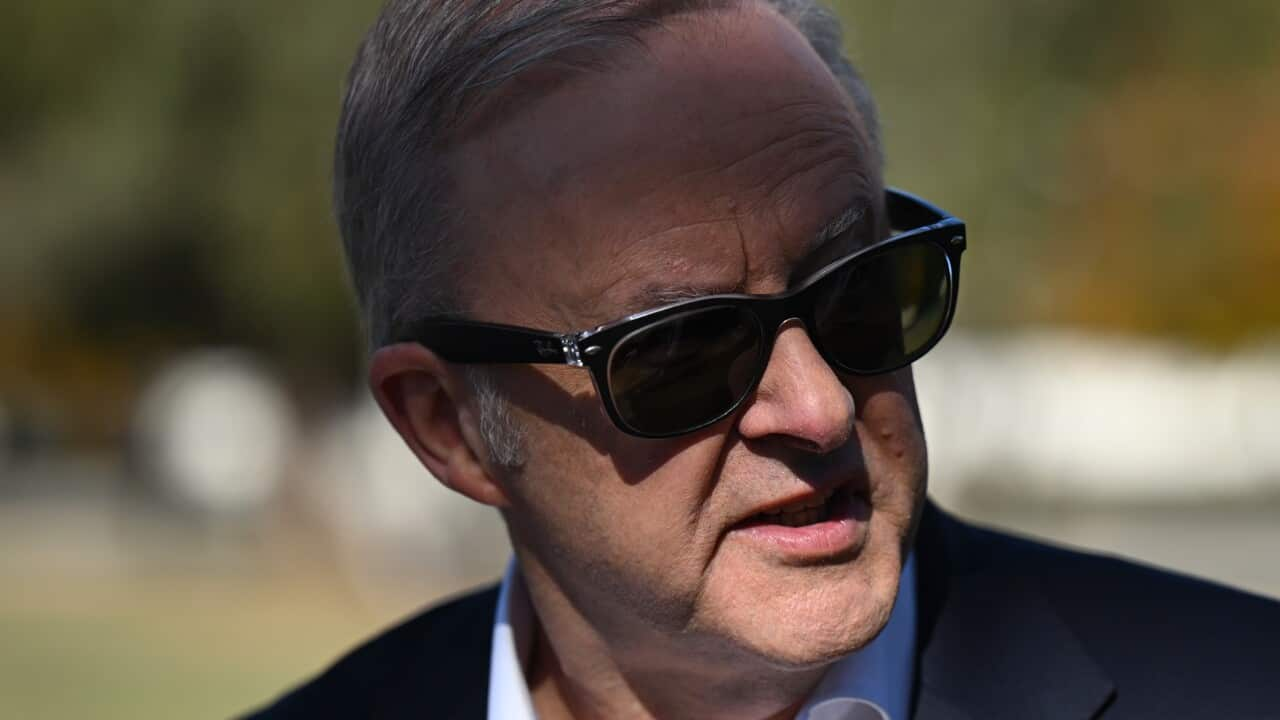Violence between Indonesian troops and Indigenous West Papuans in the Papua province has increased in recent months, and the number of people killed, abused, or tortured has climbed, according to human rights researchers.
West Papua has been under Indonesian control for over 60 years and has not been internationally recognised as a country.
The United Liberation Movement for West Papua (ULMWP) claims that Indonesia killed a West Papuan man, firing at him from a helicopter while he was riding his motorbike, and severely injuring another man last Tuesday in Puncak Regency.
It says Indonesia claimed to be conducting an airstrike on a West Papuan military target but hit civilians instead, alleging the injured man doesn't want to go to hospital for fear of retribution.

West Papuan activists have been fighting for self-determination from Indonesia for over 60 years. Source: AAP / EPA
It says that in the six months before that, nine people were killed. The monitor also says there has been "an unusually high number of torture cases" — at least 32 in the last six months.
Indonesia's Australian embassy has been contacted for comment but has not yet responded to the claims. The Indonesian military has consistently denied past allegations of human rights abuses in West Papua.
Foreign journalists aren't allowed into the disputed region, which Indonesia says is for their own safety.
But activists say a lack of attention and international coverage of the region allows Indonesia to act with further impunity.

Melbourne-based Lewis Prai Wellip is a representative for West Papuans in Australia. Source: Supplied
He says the refusal of other countries to challenge Indonesia on West Papua, as well as the lack of visibility on alleged human rights abuses, "gives a green light to the oppressor to do whatever they want".
Prime Minister Anthony Albanese has described Indonesia as "Australia's most important relationship" and listed a trip to the northern neighbour among his first priorities once sworn in for his second term as prime minister.
Albanese is set to fly to Indonesia on Wednesday to meet with Indonesian President Prabowo Subianto. He has previously praised the two countries' strong defence and security relationship.

Prime Minister Anthony Albanese on a previous visit to Indonesia. Upon being sworn in for his seond term as prime minister he described Australia's relationship with Indonesia as its most important. Source: AAP / Lukas Coch
"In Australia, we talk about the rule of law and believe in [the] human rights of everyone. Meeting with Indonesia, Anthony Albanese really needs to emphasise the rule of law and he needs to stress Indonesia's need to respect West Papuan people's rights.
"We cannot go about making business with Indonesia when they're trampling on the rights of people and the respect of people."
Indonesian-based Human Rights Watch researcher Andreas Harsono says Australia has enough political capital to influence Indonesia on this issue.
"Anthony Albanese can ask President Prabowo to listen to his own general, who said that a security approach is not enough to solve the problems in West Papua. Papuans also want the central government to listen and take a political approach."
Harsono said Papua's strategic location in the Indo-Pacific region makes peace on the island a crucial issue for Australia.
"It is so important geographically as a pathway to northern Asia," he said.
Earlier this year, in the region, though Indonesia denied the request was made.
The incident sparked deep concern among Australia's government and Opposition over the possibility of Russia storing weapons less than 1,400 kilometres from Australia.
Why is there increasing violence in West Papua?
Prai Wellip says increasing violence is partly due to the mineral deposits in the area.
"Indonesia's ongoing military operations in the highlands of West Papua displace civilians so that the military and government can have massive gold reserves," he said.
Harsono has been researching the situation in West Papua for more than three decades.
He says he has been sent an increasing number of distressing images showing clashes between Indigenous people being bombed and Indonesian soldiers being killed by snipers.
He says there have been more Indonesian troops sent to Papua in the past 12 months, which could be driving the violence.
"Even mainstream Indonesian think tanks acknowledge that human rights are being abused consistently in Papua, and not dealt with by the Indonesian military or police," he said.
Prai Wellip says that Indonesian troops, particularly if they are new, often do not understand West Papuan culture.
"If they see someone with an afro or in traditional minimal dress, they think they're part of the resistance army and they've been treating them how they please. People are reacting."
Amnesty International's secretary general, Agnes Callamard, expressed concerns regarding the entrenched impunity in Indonesia, particularly in West Papua, during a visit to Indonesia in March this year.
Amnesty International says military and police actors routinely escape prosecution for extrajudicial killings, torture, and suppression of civil space, as law enforcement institutions fail to ensure accountability for human rights violations.
The Department of Foreign Affairs and Trade has been contacted for comment.



